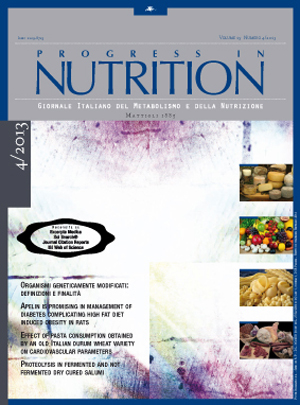Proteolysis in fermented and not fermented dry cured salumi
Keywords:
Proteolysis, Protease, fermented and not fermented salumiAbstract
Muscle proteins undergo an intense proteolysis from conversion of muscle in meat to cured processed pork. Throughout this period is produced a great number of small peptides and high amounts of free aminoacids that characterize aroma of dry cured products. The enzymes responsible of these changes can be only endogenous muscle proteinases (cathepsins B, D, H and L and calpains) or both endogenous muscle proteinases and exogenous microbial proteolytic enzymes. Proteolysis generated by endogenous and exogenous enzymes typify fermented salami and not fermented processed pork resulting from entire anatomic cuts. Proteomic approach was applied to study the effect of enzymatic action on different processed pork products. Two dimensional gel electrophoresis (2DGE) maps of dry cured salumi, ripened for 1 month, and ham, ripened 12 months, describe protein evolution at final occurrence of proteolysis.Downloads
Published
Issue
Section
License
This is an Open Access article distributed under the terms of the Creative Commons Attribution License (https://creativecommons.org/licenses/by-nc/4.0) which permits unrestricted use, distribution, and reproduction in any medium, provided the original work is properly cited.
Transfer of Copyright and Permission to Reproduce Parts of Published Papers.
Authors retain the copyright for their published work. No formal permission will be required to reproduce parts (tables or illustrations) of published papers, provided the source is quoted appropriately and reproduction has no commercial intent. Reproductions with commercial intent will require written permission and payment of royalties.

This work is licensed under a Creative Commons Attribution-NonCommercial 4.0 International License.


